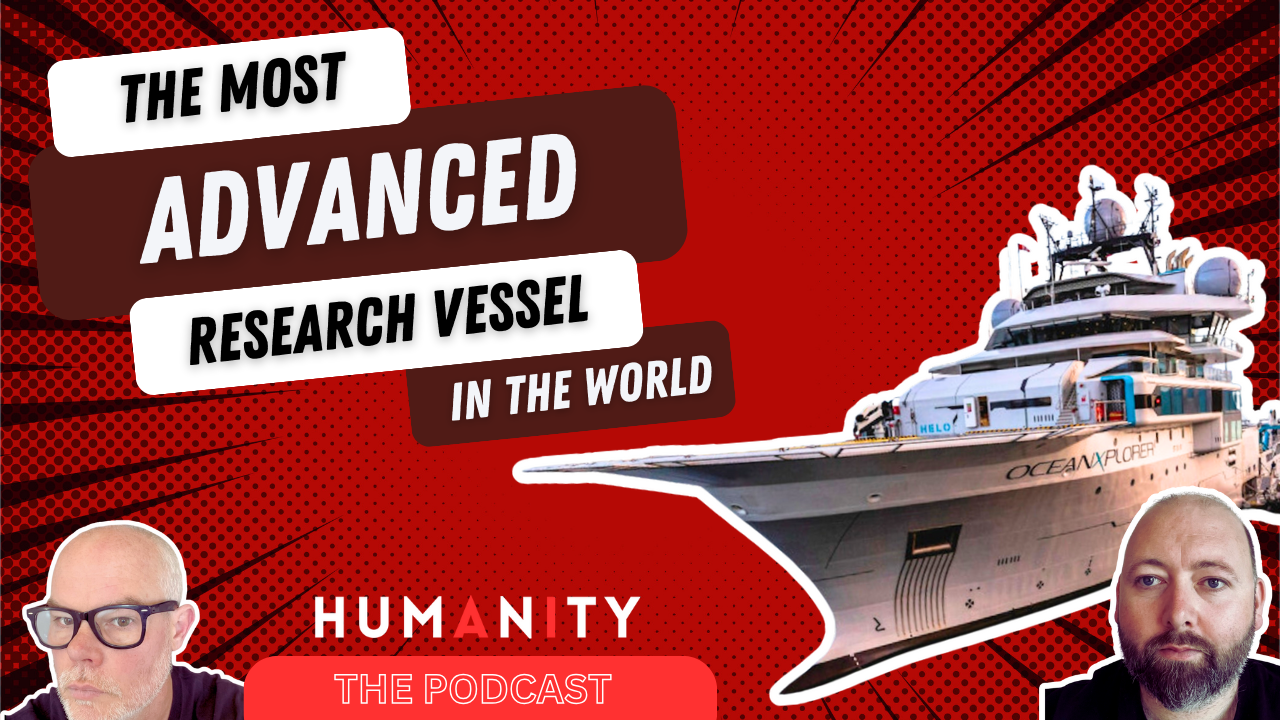Humanity Podcast: OCEANX - The world's most advanced research vessel
This vessel, a former survey ship now transformed into the most advanced research vessel in the world, offers an unprecedented peek into the mysteries of the deep.

Exploring the Depths: A Glimpse into the World's Most Advanced Research Vessel, OceanX Explorer.
In today's digital age, where information travels faster than the wind, it's not often that we get to witness a marvel of technology and research like the OceanX Explorer. This vessel, a former survey ship now transformed into the most advanced research vessel in the world, offers an unprecedented peek into the mysteries of the deep.
The OceanX Explorer, owned by Ray Dalio of Bridgewater and significantly contributed to by famed filmmaker James Cameron, is not just a vessel; it's a floating testament to human curiosity and the quest for knowledge.
This colossus, currently docked in Dubai for COP 28, is equipped to house a crew of 35 and can carry up to 72 people on missions lasting up to a month, thanks to its substantial provisions. With facilities like a helipad and advanced research equipment, the ship dwarfs even the most luxurious super yachts in its vicinity.
The OceanX Explorer boasts state-of-the-art technology, including two submarines - one focused on research and another designed for media purposes, like those used by James Cameron. The research sub is equipped with hand grabbers for collecting samples, while the media sub features high-resolution 8K cameras for capturing stunning underwater footage. Additionally, the vessel has a remote-controlled submersible capable of diving to depths of 6,000 meters, providing an unparalleled view of the ocean's depths.
The vessel is a hub for scientific activity, with facilities like a hyperbaric chamber for treating diving-related illnesses, a dive room equipped with rebreathers allowing extended underwater exploration, and a DNA analysis lab that has already identified several new marine species.
Highlighting its role in environmental research, the ship has participated in projects like mapping coral reefs in 3D and contributing to the Seabed 2030 project, aimed at mapping the entire ocean floor. Such initiatives underscore the importance of understanding our oceans to address environmental challenges.
A core philosophy of OceanX is to foster open data sharing. This approach facilitates a broader understanding of the ocean and aids in the global effort to preserve our marine environments. By collaborating with research networks and environmental agencies, OceanX is at the forefront of promoting open science and environmental stewardship.
As we look to the future, the OceanX Explorer stands as a beacon of hope and a symbol of our commitment to understanding and preserving the world's oceans. Its journey from the Red Sea to the Seychelles and Indonesia is not just a path across the globe; it's a journey into the unknown, unlocking secrets of the deep that could hold the key to our planet's future.
The OceanX Explorer is more than just a vessel; it's a testament to human ingenuity and a reminder of the wonders that await us beneath the waves.


